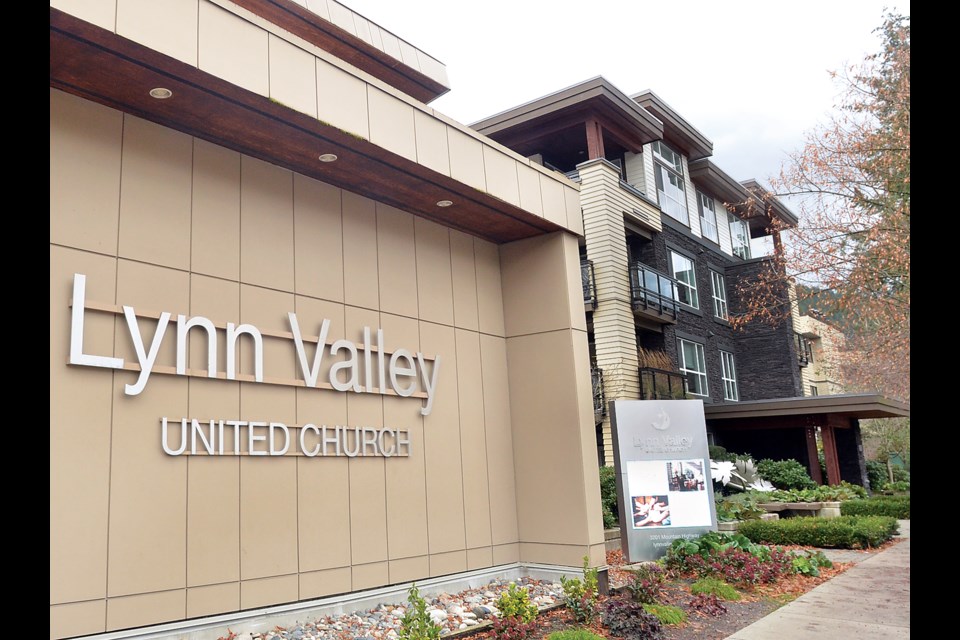The District of North Vancouver will not be looking at opportunities to redevelop places of worship as mixed-use sites that could create new affordable housing, as a motion to that effect has been defeated by council.
At meeting Monday, Nov. 18, a split 4-3 vote on the issue narrowly failed, with Mayor Mike Little and Couns. Herman Mah, Lisa Muri and Betty Forbes opposed.
The initiative was brought forward by Coun. Catherine Pope, who wanted to direct staff to explore opportunities to add affordable housing on land owned by churches and other faith-based groups.
Pope’s motion – supported by Couns. Jim Hanson and Jordan Back – was modelled after a similar one put forward at City of Vancouver council, which received near-unanimous support there.
But others on the North Van council disapproved of the initiative, citing concerns that it could spike land values, making it harder for other faith groups to carve out worship spaces in the future, and that district staff already have a full plate completing other supportive housing projects.
Pope began introducing her motion by holding up an eviction notice handed to temporary tenants at the Travelodge site. Everyone living there must clear out by Jan. 15.
“Predictably, we will have more homeless people on the street,” she said. “The motion we have before us today is another baby step forward in solving the vexing and escalating problem of affordable housing.”
Like the proposal in Vancouver, the goal is to streamline the process for faith groups who want to develop some of their land for affordable housing, Pope said.
“This concept is not without precedent,” she said. “In 2014 the district rezoned the Lynn Valley Church property, and it was then able to build a new church, daycare, accessible units and strata, which funded the development. It’s also been done on a number of sites in the City of Vancouver.”
Pope said she hoped the initiative would activate interest in faith groups, and let them know the district is open for business to expedite the planning process for affordable housing.
Back said he was happy to support the motion.
“As the housing crisis continues to grow and put immense pressure on so many in our community, I think we need to look at any kind of innovative solution that might get affordable housing built sooner and in more parts of the community,” he said.
Back added that institutions of faith have existing trust within the community, which could help build support for affordable housing projects, which often face resistance.
“Furthermore, a number of faith-based organizations often already provide essential social services within their churches: food programs, addiction recovery, counselling,” he said. “Partnerships with them on housing could create not only housing for shelter, but also access to some of these much-needed support services.”
Residential rezoning of church pushed land value up by $600,000, mayor says
Little said he would not be supporting the motion.
“The challenge I keep running into is that every time we unlock the value of these properties, we actually put a target on the backs of the churches, and we are keeping pressure upon them to change what they do in their spaces,” he said.
Little said the Lynn Valley Church development with Marcon was used as justification for a significantly higher price on a different public assembly property being bought by another faith group.
“So the newer, growing church all of a sudden had the property go up by $600,000 when they said that it could be developed in a fashion similar to Marcon,” he said.
“It’s problematic, if you … raise the value of these properties by unlocking development potential,” Little said. “You’re actually making it harder for the faith community to change.”
As an example, he said that there’s a growing Muslim population in the district that would love to buy a church property and have a permanent home, rather than renting light industrial or commercial spaces.
“I think it has the potential to be exclusionary to the point of discrimination,” Little said.
Muri said there’s absolutely no guarantee that any place of worship would put its property up for affordable housing.
“As the mayor has pointed out, there’s some significant challenges with the legislation and what that’s going to do with the cost of land,” she said. “Churches are not naive, in my opinion, in regards to the property that they’re sitting on.”
After years of sitting on council, Muri said she understands the amount of work that staff is currently taking on to review the district’s zoning bylaw.
“It is an absolutely massive, massive project, as well as all of the legislation that they are under the gun to get done by the end of 2025, so I just ask council to be respectful of their time and their capacity to be able to do any more work,” she said.
Frustrated that Council said no to my motion to enable churches to develop affordable housing on their properties. @NVanDistrict staff are too busy, they said in voting against it. Seriously? #HousingCrisis pic.twitter.com/Wm3AmjpSky
— Catherine Pope (@globalpope) November 19, 2024




